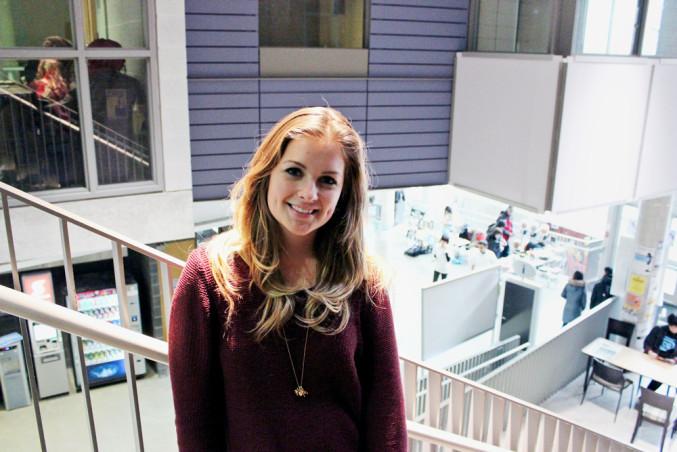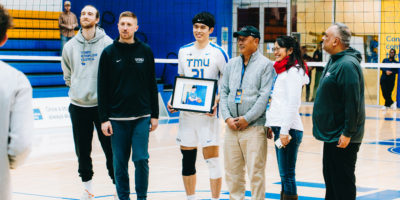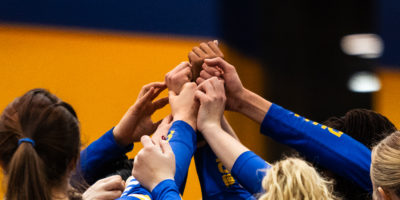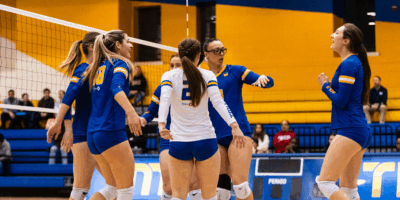By Tara Deschamps
For Ryerson Students’ Union (RSU) president Rodney Diverlus, being a student activist has been a challenge.
The former RSU faculty director and vice-president equity has taken semesters off school, worked 60 hour weeks and struggled to maintain a social life, all as part of his dedication to his job.
But for Diverlus, a dance student who had started getting involved in campus through residence council, this became entirely worthwhile when he helped a student who was “outed” to their parents and then kicked out of his home with no money or support.
He says the RSU arranged for the student to access emergency housing and resources and to be academically accommodated, but the real reward has been seeing the student’s recent success.
“He is now in a relationship, happy and stable, and doing well,” Diverlus says. “It was all the antihomophobia work of the students’ union that gave him the motivation to [accept] himself and come out to some people. I was very touched by this and it serves as motivation for me to continue what I do.”
But regardless of their motivation for remaining in student politics, many current and former executives share similar beginnings in student government.
For many, that process begins in residence council, which is often a first contact with student leadership.
Since stumbling upon student activism in 2010, third-year social work student Grant Mason has become residence council president and an RSU faculty director.
Mason originally applied for a council position in order to score a room on campus after a housing glitch left him without a dorm. By the time the situation was solved and Mason had secured a spot in Pitman Hall, residence council positions had been filled. Still eager to be involved with student governance, he began volunteering with the council and the students’ union.
It was then that Mason learned that campus involvement could provide more than walls and a roof.
“I was always very political but I wouldn’t say that I was involved in school politics at all,” he says. “I was kind of an outcast [in high school] so having come to Ryerson it was a new start and that’s why it was very important to get involved.”
He quickly made new friends and began taking on more responsibilities before being elected as president and rebuilding the council after a tumultuous year that saw many council members leave.
It wasn’t until this past summer that Mason realized how his on-campus achievements could contribute to life away from Ryerson. He says he spent the summer working as head lifeguard at a well-known resort in Muskoka – a job he landed because of his campus involvement.
“The only reason I got that job was because I had worked as the vice-president of events for residence council and because I had done event planning and work with the budget,” he says.
Executive positions with the RSU also have their benefits. The perks of Diverlus’ position include a salary and a capacity to network with Ryerson administrators, other student activists and Canadian politicians.
But Diverlus insists the real benefits of being president are ones he shares with all students.
“My greatest reward is knowing that the work we do has real life impact on students’ lives as well as our own,” he says.
While Diverlus’ term as president is nearing its end, he is sure that experiences like these in conjunction with skills he’s developed through the RSU will benefit him in the future as he finishes his studies and ventures into the dance industry.
“Whether it’s understanding marginalization, or fighting for equity and representation in the industry, there are a lot of skills that I will be taking forward with me,” he says.
Though Diverlus’ activism will be taking a backseat as he returns to complete postponed courses and finish his degree, others will continue to reap the benefits of their involvement on campus.
Like Mason and Diverlus, former residence council student affairs director Danielle Brogan has seen similar benefits from her work.
“A lot of my experiences outside of the classroom with residence council and the students’ union have helped me develop interpersonal skills that you can’t learn from a book,” says the fourth-year fashion communications student, who is currently running unopposed for the RSU’s vicepresident student life and events position.
Brogan says the biggest reward for her campus involvement has been seeing residence cafeteria food options improved as a result of a campaign she worked on.
Through the project, she says she was able to meet many other students and encourage them get involved in campus issues. Brogan says work like this is truly a labour of love.
“I do this because I’m passionate about the campus and creating positive change,” she says.












Leave a Reply